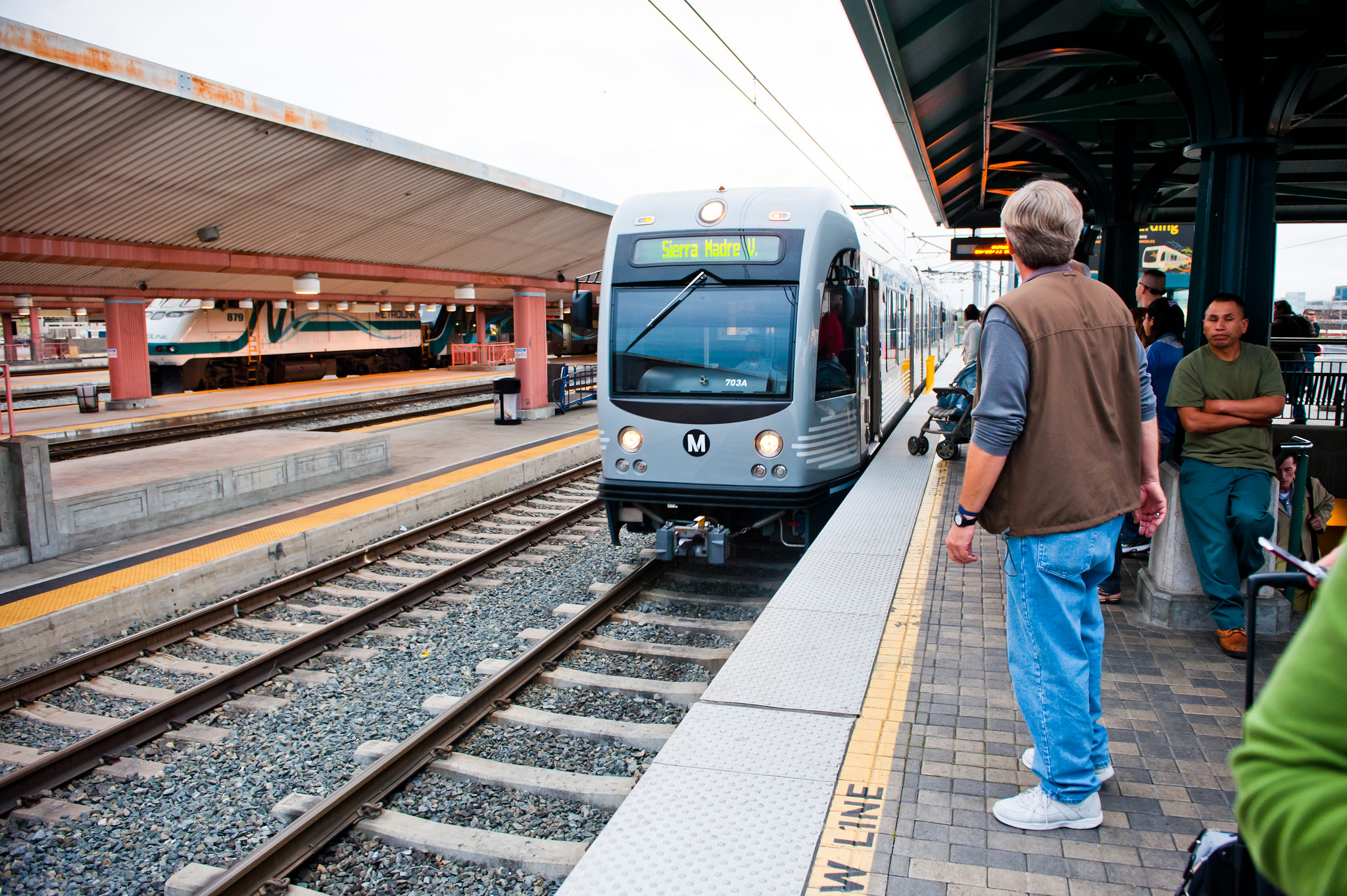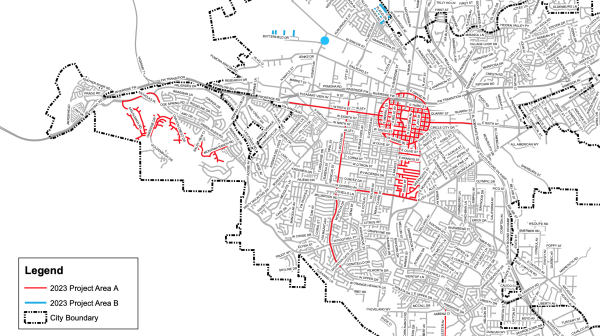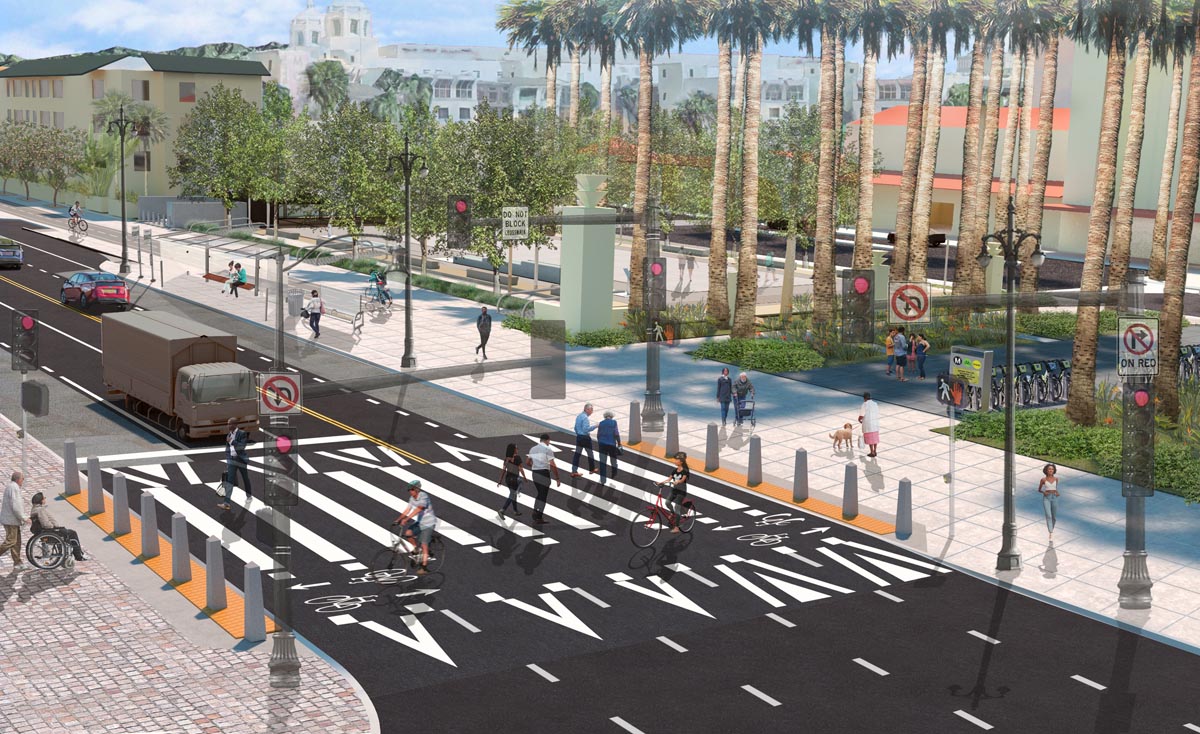Arrest and booking data from three police departments in Northeast Los Angeles County — Glendale Police Department, Pasadena Police Department, and South Pasadena Police Department — showed large disparities in arrests by race, according to an analysis issued Monday by the county Commission on Human Relations.
The report reveals that Black and Latino arrest rates in the suburban cities are much higher than those for whites and Asians. The county commission also determined that cash bail disparately impacts Black and Latino arrestees, who are more likely to be given jail time for similar offenses committed by white and Asian arrestees.
In addition, data obtained from the three police agencies through public records requests show that arrests cluster especially around major commercial centers in the cities, except for arrests for violent crimes, which cluster in areas with higher Black and Latino populations.
Further, disparate arrest trends based on race/ethnicity are primarily driven by misdemeanor offense arrests, including drug offenses reclassified by Prop. 47. Passed in 2014, the measure made simple drug possession a much less serious charge than in previous years.
“For decades, local police accountability efforts have been focused primarily on the big three metropolitan police departments in Los Angeles County — L.A. County Sheriff’s Department, Los Angeles Police Department, and Long Beach Police Department,” according to the report.
“Consequently, important information about small to mid-sized police departments, especially those in suburban cities, often has been overlooked. This report is a preliminary effort to remedy this omission by surveying the data collection landscape for suburban police departments, uncovering potential disparities in enforcement actions, and illustrating the need for parity.”
The report found that all three suburban police departments had an arrest rate of between 40 and 42 per 10,000 residents in 2011 and 2012 — matching the arrest rate in the city of Los Angeles. However, between 2011 and 2019, arrest rates diverged considerably. In Los Angeles and South Pasadena, arrests per 10,000 fell by close to 50%, reaching 22 per 10,000 citizens in Los Angeles and 24 per 10,000 citizens in South Pasadena, according to the commission.
Over the same time period, the report showed, arrests per 10,000 citizens were unchanged in Glendale and increased in Pasadena to 48 per 10,000 citizens. As a result, Glendale and Pasadena have conducted nearly twice as many arrests per resident in recent years than has the city of Los Angeles. While arrests per resident fell in Glendale and Pasadena in 2020 and 2021 with the COVID-19 pandemic, they remained well above the arrest rates in Los Angeles and South Pasadena, the report says.
According to the report’s breakdown, Latinos account for 42% of arrestees in Glendale, 45% in Pasadena, 55% in South Pasadena, and 47% in Los Angeles.
Black arrestees, meanwhile, constitute the second-largest racial category in Los Angeles and Pasadena, and the third-largest racial category in Glendale and South Pasadena. Black arrestees accounted for 8% of arrests in Glendale, 12% of arrests in South Pasadena, 27% of arrests in Pasadena, and 29% of arrests in Los Angeles, the commission reported.
At the same time, white arrestees account for 20% to 30% of arrestees in each city. In Glendale, which has a large Armenian population, 27% of arrestees were white and do not have an Armenian surname, while an additional 18% of arrestees had an Armenian surname — the large majority of whom were identified by the police department as white, according to the report.
White arrestees, including white-identifying Armenians, made up 27% of arrests in South Pasadena, 21% of arrests in Pasadena, and 19% of arrests in Los Angeles. Asian arrestees made up a small share of arrests in all four cities, from 5% of arrests in South Pasadena to less than 1% of arrests in Los Angeles.
In a look at arrestee demographics, the study found that:
— Black and Latino arrestees are over-represented relative to the population in all four cities, including Los Angeles;
— The rate of over-representation for Black and Latino arrestees has barely changed over the past 10 years;
— Women make up between 20% to 25% of arrestees in all four cities, with small variations by race. The share of Asian arrestees who are women is somewhat higher than for other races, ranging from 27% in Glendale to 41% in Los Angeles; and
— About half of arrestees in Glendale and Pasadena are city residents. Black and Hispanic arrestees are over-represented among city residents in both cities.
In terms of geography, findings showed police activity centered on the largest commercial and office areas of Pasadena (Old Town), Glendale (Americana/Galleria in the downtown area), and South Pasadena (Fair Oaks and Mission streets), suggesting that suburban police focus their attention on the highest traffic areas and on protection of property and the economy.
The commission also offered recommendations for police departments in support of better understanding of their policing practices, including by making efforts to regularly release redacted arrest or incident data to the public.
The study was published by the county Commission on Human Relations, in partnership with Dr. Seva Rodnyansky and Dr. Jorgen Harris of Occidental College.







